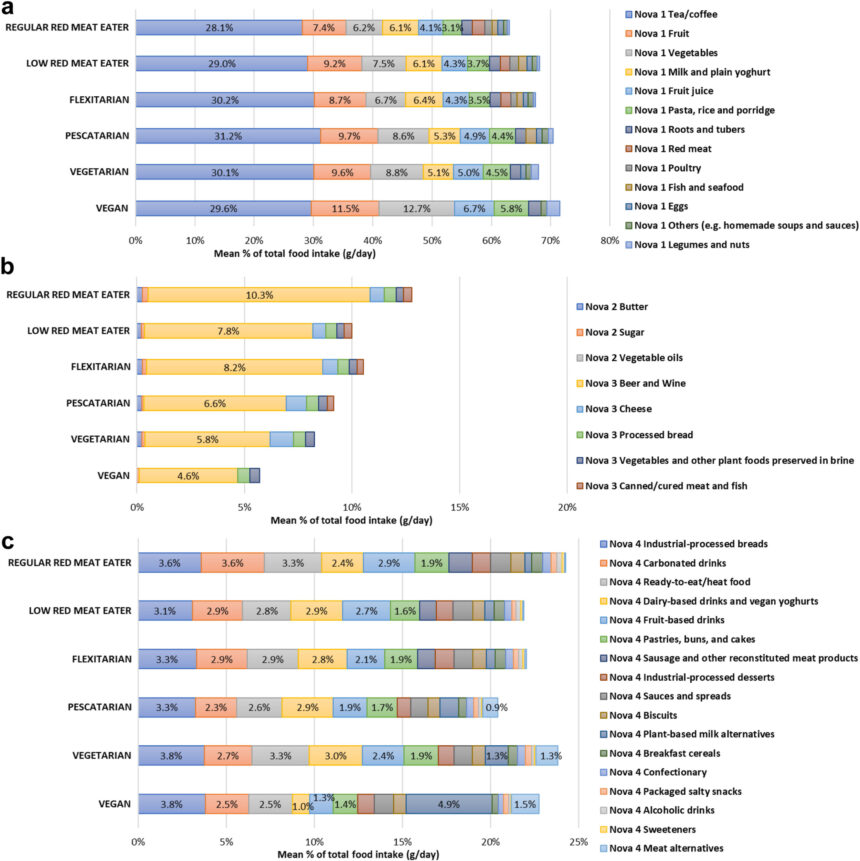A recent study conducted by a team of public health officials at Imperial College London, in collaboration with researchers from the University of São Paulo and the International Agency for Research on Cancer, has shed light on the dietary habits of people in the U.K. The study, published in the journal eClinicalMedicine, focused on the consumption of ultra-processed foods among individuals following vegetarian diets compared to those who consume meat.
The research revealed a surprising finding – individuals following a vegetarian or vegan diet in the U.K. tend to consume more ultra-processed foods than their meat-eating counterparts. While vegetarianism is often associated with a diet rich in fruits, nuts, and vegetables, the reality is that many vegetarians also rely on ultra-processed foods such as breakfast cereals, candy bars, noodles, fake meats, and pizza.
Ultra-processed foods are known to contain a variety of additives and chemicals that may not be beneficial for health. These additives are often used to enhance flavor, texture, appearance, or shelf-life of the products. In contrast, meat in its natural state undergoes minimal processing and is considered a wholesome source of nutrients.
To gather data on eating habits in the U.K., the researchers analyzed information from the UK Biobank project, which stored data from 200,000 individuals. The findings indicated that individuals following a vegetarian or vegan diet were more likely to consume ultra-processed foods than those who included meat in their diets. This suggests that the potential health benefits of reducing red meat consumption may be offset by the negative effects of consuming ultra-processed foods.
The study highlights the importance of making informed dietary choices, regardless of whether one follows a vegetarian, vegan, or meat-based diet. It is crucial to prioritize whole, minimally processed foods and limit the intake of ultra-processed products to maintain overall health and well-being.
For more details on the study, the research paper titled “Plant-based dietary patterns and ultra-processed food consumption: a cross-sectional analysis of the UK Biobank” can be accessed in the journal eClinicalMedicine. This study underscores the need for further research and awareness regarding the impact of dietary choices on health outcomes.
In conclusion, the study emphasizes the significance of mindful eating and encourages individuals to opt for whole, unprocessed foods to support a balanced and nutritious diet. By making informed choices and prioritizing the consumption of wholesome foods, individuals can promote their overall health and well-being.







